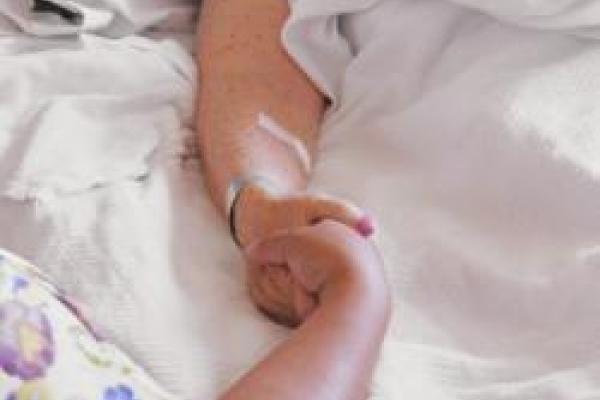
Co-sponsored by the College of Nursing Center of Excellence in Critical and Complex Care, the Division of General Internal Medicine, & the Institute for Collaborative Research and Public Humanities.
End-of-life planning and practices, including Advance Care Planning (ACP), hospice, and palliative care, bring together a range of social actors. Patients, loved ones, doctors, nurses, social workers, clergy, and other engaged parties differ in their perspectives, relationship to the patient's care, and degrees of comfort with questions of death and dying. Institutional, cultural, and emotional divides can create conflicts of understanding or the simple lack of a vocabulary with which to address end-of-life planning. How can we ensure that patient wishes are voiced, heard, and respected?
This one-day symposium presents new collaborative interdisciplinary research, bringing medical practitioners, caregivers, and patients together with ethnographers of language and social interaction. Together, we will work to imagine holistic approaches for talking toward and through the end of life.
Register for lunch with Cristina Benedetti.
Schedule of Events
8:00-8:30am
Registration
8:30-8:45am
Welcome/ Introduction
- Dorothy Noyes, Director, OSU Center for Folklore Studies
8:45-10:00am
Talk in End-of-Life Settings
- The Use of Narrative for Patients and Families at End-of-Life
Janine Overcash, OSU College of Nursing - Face-Work at the End of Life: Why Palliative Care Differs from Other Sociolinguistic Encounters
David Jennings Gramling, Department of German Studies, University of Arizona
10:00-10:15am
Coffee Break
10:15-11:30am
Collaboration in Research and Practice
- End of life: Are We There Yet?
Robert Gramling, Department of Family Medicine, University of Rochester - Speaking of Death: Reported Speech in ACP-Based Narratives
Gabriella Modan, Department of English, OSU
Seuli Bose Brill, Division of General Internal Medicine, OSU Wexner Medical Center
11:30-12:30pm
Lunch
12:30 – 2:30pm
The Patient Experience of Advance Care Planning
- The Process of Planning: Planning for Sickness in a Time of Heath
Lynda Goldberg, Program Director, Policies and Research, OSU Comprehensive Cancer Center/James Cancer Hospital
Andrew Schamess, Division of General Internal Medicine, OSU Wexner Medical Center - Three Dads Facing Three Deaths: Meeting Their Needs, Acknowledging My Needs, and Finding Peace
Suzy Thorson, Telecommunications Consultant, Franklin Computer Services Group - It's Hard to Give Up and Die: Barriers to Making Concrete End-of-Life Decisions in the Face of Serious Illness
James Grant & Seuli Bose Brill, (Patient and Doctor Dyad) Internal Medicine and Pediatrics at Grandview, OSU Wexner Medical Center
2:30-2:45pm
Coffee break
2:45-3:45pm
Roundtable Discussion: Evidence and Practice
- Megan Buller, Combined Internal Medicine/Pediatrics Residency Program, Nationwide Children's Hospital and OSU Wexner Medical Center
- Kavitha Norton, Division of Palliative Medicine, OSU Wexner Medical Center
- Dorothy Noyes, OSU Center for Folklore Studies
- Dana Schroeder, Director of the Department of Chaplaincy, OSU Wexner Medical Center
3:45-4:15
Wrap Up/ Future Directions
Image courtesy of Getty Images #200150996-001
